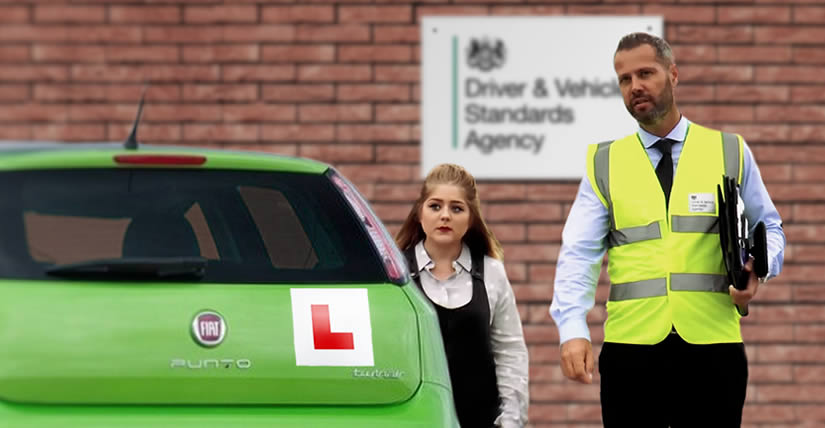What Will the Driving Examiner Ask?
Before the test, during the test and the end of the driving test, the examiner is required to ask the test candidate a series of questions. All test candidates are asked the same questions.
What Will the Driving Examiner Ask?
While in the driving test centre waiting room, the examiner will ask the following questions:
”Can I see your licence please?”
The first question you’ll be asked by the examiner is to see your driving licence. If you have a photocard licence, then this is all they require. If you still have the old paper licence, you’ll need to bring photographic identification such as a valid passport.
”Please sign the insurance and residency declaration.”
After inspecting your credentials, the examiner will ask: ”I’d like you to read and sign the insurance and residency declaration here.” It is of course a legal requirement that any car driven on a public road is insured and in order to take a UK driving test, you must be resident. Examiners do not check vehicle insurance or residency status, you’re simply required to sign the declaration.
”Would you like your instructor to come with you?”
The examiner will ask: ”Would you like your instructor to come with you?” You’re only required to answer yes or no to this. Some test candidates prefer their driving instructor to accompany them on the test as it may be comforting having a familiar face. Although the instructor cannot help in any way, it can be beneficial (if you fail) as the instructor can assess your driving and take notes.
”What would you like me to call you?”
The examiner will now introduce themselves (you can call them by their first name) and then ask what name you would like to be called. This can be formal, informal or a nickname – it’s up to you. You will now follow the examiner out of the waiting area to the car park.
”Which car is yours?”
Now in the car park, the examiner first asks: ”Which car is yours?” To ensure your vision is up to standard, there will be an eyesight test where you’ll be required to read a number plate. The examiner will not ask you to read the number plate on your own car.
”Can you read that number plate?”
The examiner will now ask: ”Can you read the number plate on that vehicle?” The examiner make it clear which vehicle they are referring to. The examiner will choose a vehicle that is 20 metres away. If you need to wear glasses or contact lenses to read the number plate, then you must wear them while driving. You’ll now both head on over to your vehicle.
”I’m now going to ask you a vehicle safety question”
These are referred to as the ‘show me, tell me’ questions that relate to vehicle maintenance and safety. The examiner will explain to you that they will ask you a ‘tell me’ question now before we begin driving and a ‘show me’ question during the driving part of the test.
”Would you like me to explain a little bit about the test”
Before you start driving, the examiner will ask if you want to know some brief details about the test. You can answer yes or no – it’s up to you. If you answer yes, the examiner will inform you how long the test takes and a little information on what’s required in terms of manoeuvres and the independent section. You’ll now enter your car.
”I will be providing instructions”
Just before you set off, the examiner will inform you that they will be providing you with instruction during the test and sometimes directions on where to go. If no directions are given, then please follow the road ahead. During the drive, the examiner may participate in a little general chat as this sometimes helps to relax the test candidate. It wont be to any extent that puts you off, but if you’d prefer to keep quiet, then that’s fine.
”That’s the end of the test…..”
You’ll now pull into the test centre where the examiner may indicate where they would like you to park and to switch the engine off. The examiner will then inform you: ”That’s the end of the test…” followed by whether you’ve passed or failed. If you pass, the examiner may offer you advice on areas of improvement in your driving, they will fill out a test pass certificate and explain when your driving licence will arrive. If you fail, they will ask you if you’d like them to explain why. You can say yes or no, it’s up to you, but it’s often beneficial as it provides an insight into areas that you went wrong and where you can improve.
